Your brain blends imagination and reality—sometimes too well.
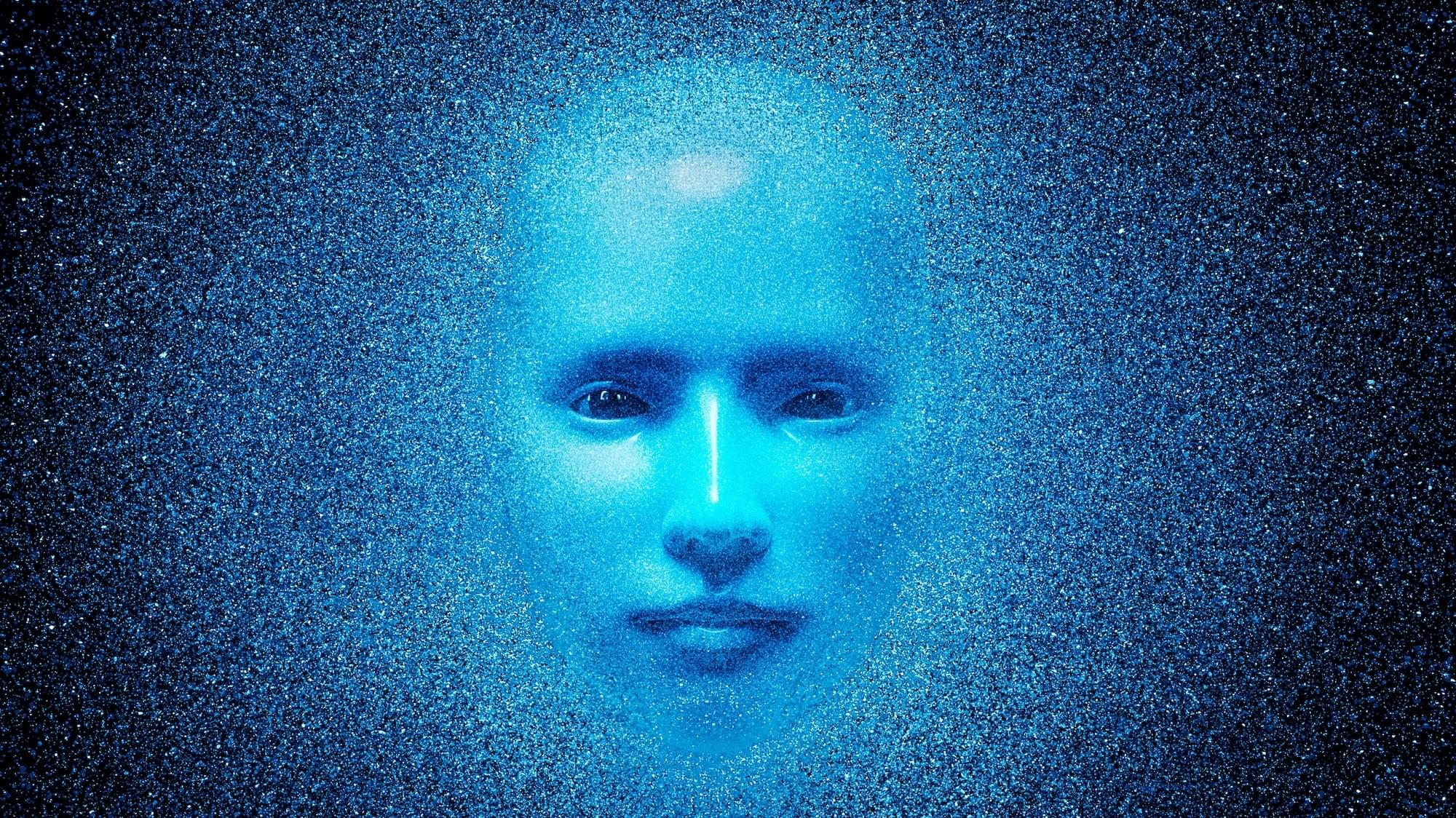

Massimo Pigliucci, Roman Yampolskiy, Anders Sandberg, and Nadine Dijkstra discuss the latest developments in neuroscience and computer programming.
Can we upload our minds to computers?
With a free trial, you can watch the full debate NOW at https://iai.tv/video/consciousness-in-the-clouds?utm_source=…escription.
The idea of uploading our minds to the digital cloud has not only been taken seriously by Silicon Valley, but turned into a detailed business plan. Elon Musk claims digitising consciousness will revolutionise humanity, and the industry is estimated to be worth $50 billion by 2030. But it’s unknown whether, in principle, we can replicate minds with computer code, or whether we should seek to do so. Critics argue we have no idea how a machine could create consciousness, and neuroscientists have yet to provide an explanation for how the brain does so. A survey of specialists by Nature found the majority thought it unlikely AI would achieve consciousness anytime soon.
Should we see talk of uploading our minds to the cloud as implausible tech marketing nonsense? Should we conclude that if thought and consciousness are unobservable, it will not be possible to replicate the mind with silicon chips? Or is digital immortality such a profound and important sea change in our lives and potential that we should pursue it at all costs?
#consciousness #ai #artificialintelligence #elonmusk #neuralink #neuroscience.
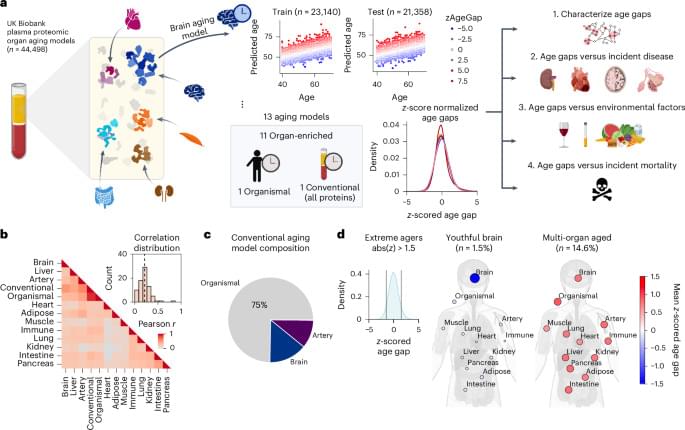
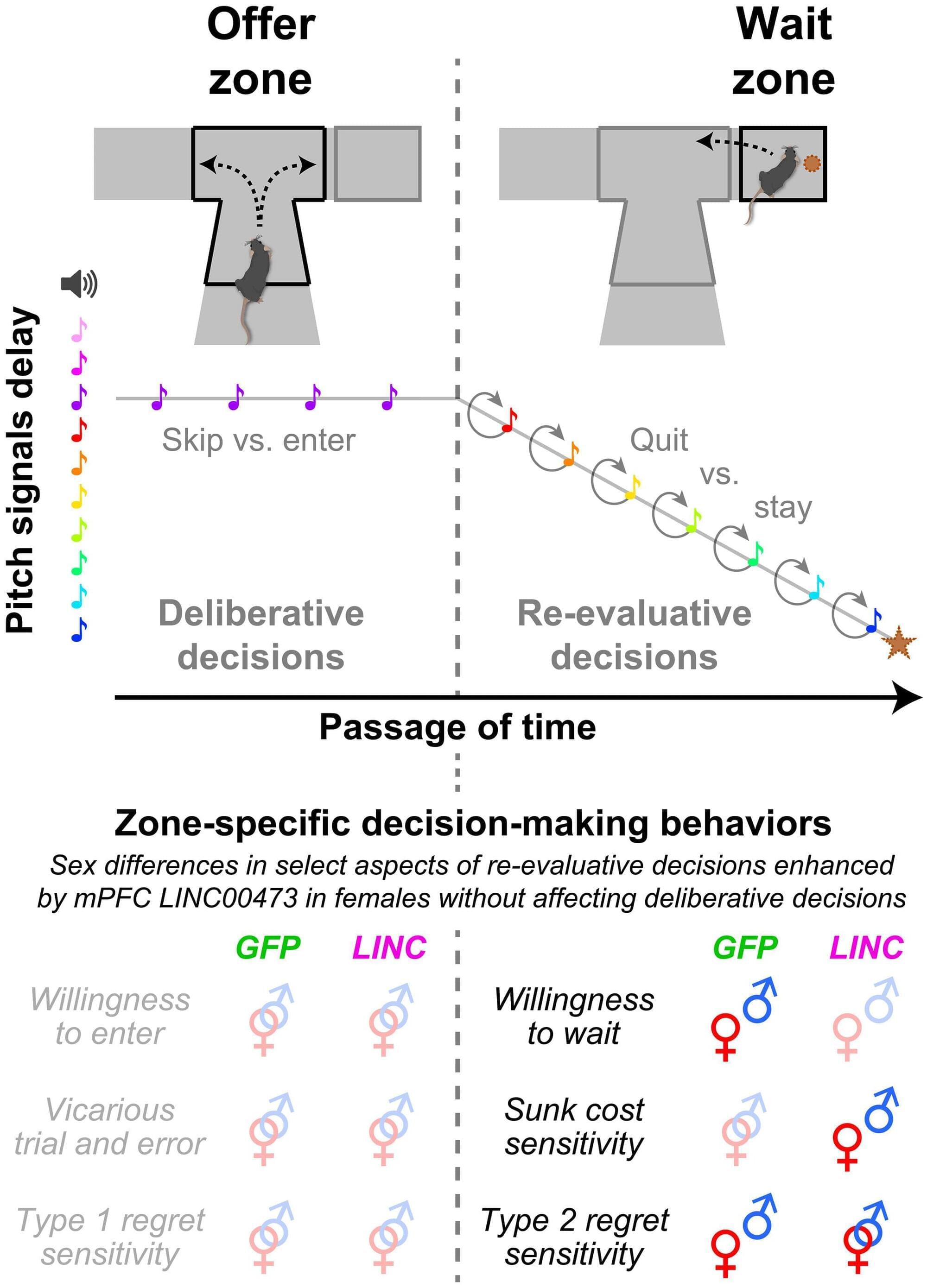
A traditionally overlooked type of RNA plays an important role in promoting resilience to depression—but only in females. According to a new study led by the Icahn School of Medicine at Mount Sinai, researchers have now discovered a novel role this molecule plays in how the female brain makes decisions. The authors revealed brain-region-specific and sex-dependent effects of this biomarker, translated from humans to animals, on how individuals make only certain types of choices. This study uncovered differences in how each sex decides whether to change their minds after making mistakes, including when to cut their losses and move on as well as how they process regrets about missed opportunities.
This research sheds important light on how specific types of decisions that could negatively impact mood engage the male and female brain in very different ways. The study, published July 11 in Science Advances, using laboratory animal models, helps uncover new biological and psychological mechanisms that may be linked to psychiatric vulnerabilities.
Women are twice as likely to develop depression than men. Furthermore, depression can manifest with different symptoms between the sexes, including alterations in negative rumination on the past. However, the neurobiological mechanisms underlying these differences remain unclear.
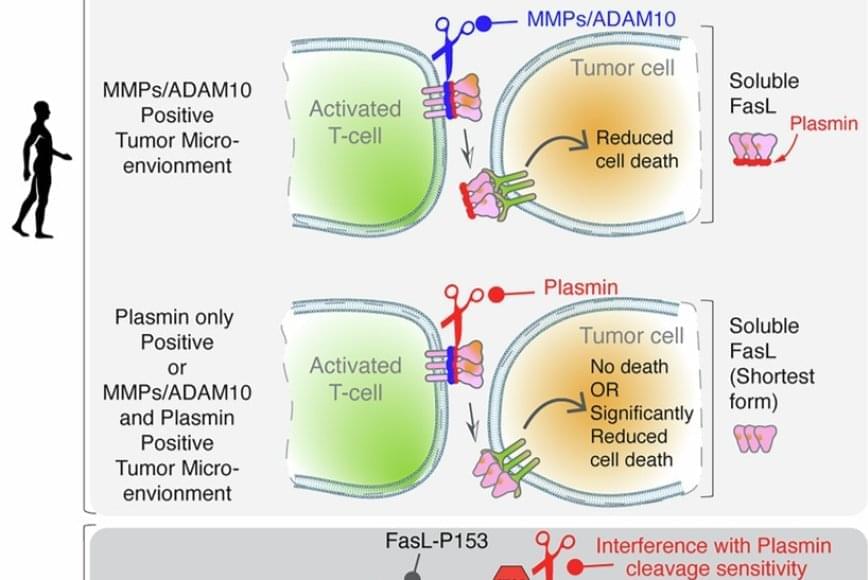
FasL is an immune cell membrane protein that triggers a programmed cell death called apoptosis. Activated immune cells, including CAR-T cells made from a patient’s immune system, use apoptosis to kill cancer cells.
The team discovered that in human genes, a single evolutionary amino acid change — serine instead of proline at position 153 — makes FasL more susceptible to being cut and inactivated by plasmin.
Plasmin is a protease enzyme that is often elevated in aggressive solid tumors like triple negative breast cancer, colon cancer and ovarian cancer.
This means that even when human immune cells are activated and ready to attack the tumor cells, one of their key death weapons — FasL — can be neutralized by the tumor environment, reducing the effectiveness of immunotherapies.
The findings may help explain why CAR-T and T-cell-based therapies can be effective in blood cancers but often fall short in solid tumors. Blood cancers often do not rely on plasmin to metastasize, whereas tumors like ovarian cancer rely heavily on plasmin to spread the cancer.
Significantly, the study also showed that blocking plasmin or shielding FasL from cleavage can restore its cancer-killing power. That finding may open new doors for improving cancer immunotherapy.
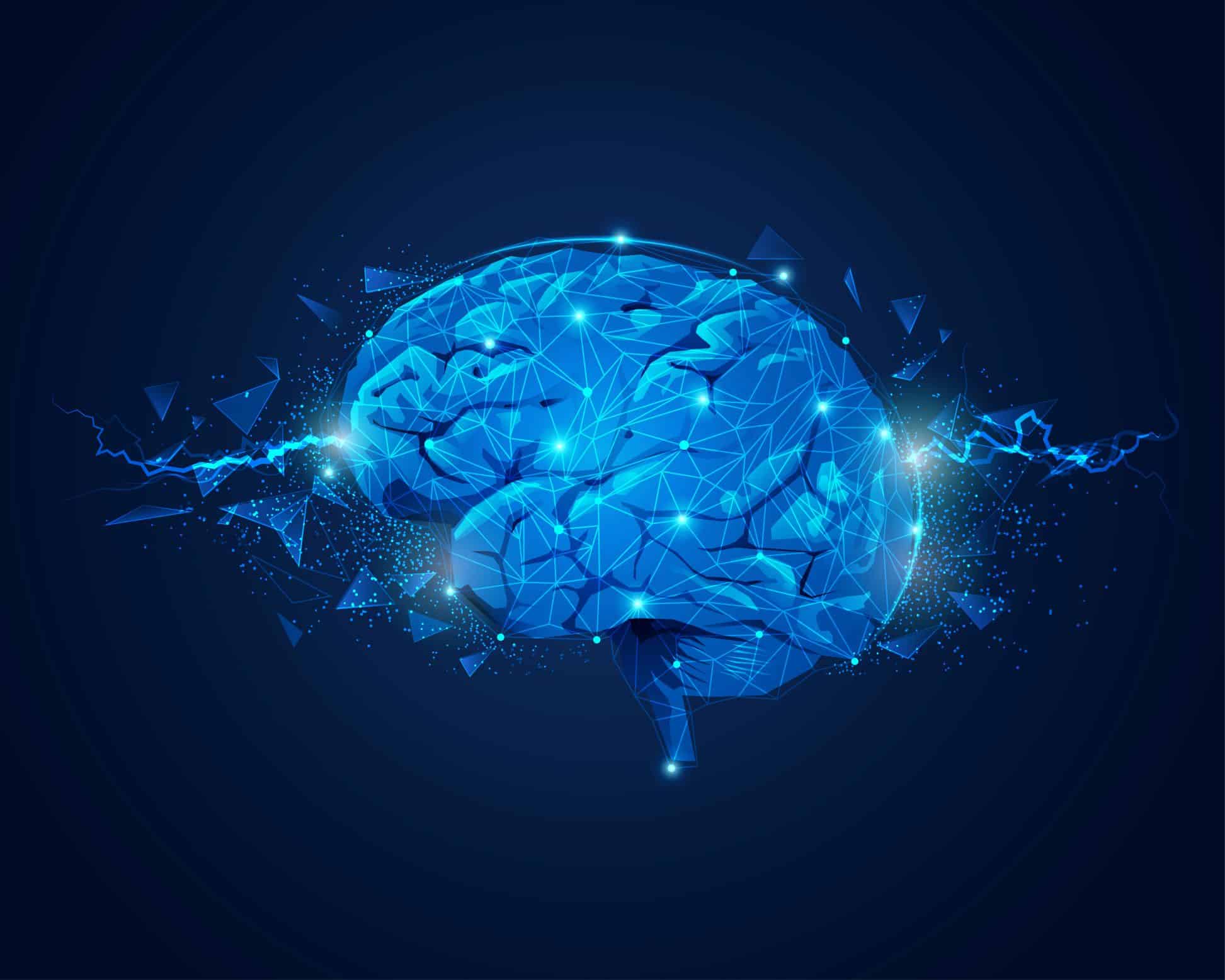

Differences in the Pace of Aging are important for many health outcomes but difficult to measure. Here the authors describe the Dunedin Pace of Aging Calculated from NeuroImaging measure, an approach that uses a single brain image to measure how fast a person is aging and can help predict mortality or the risk of developing chronic disease.

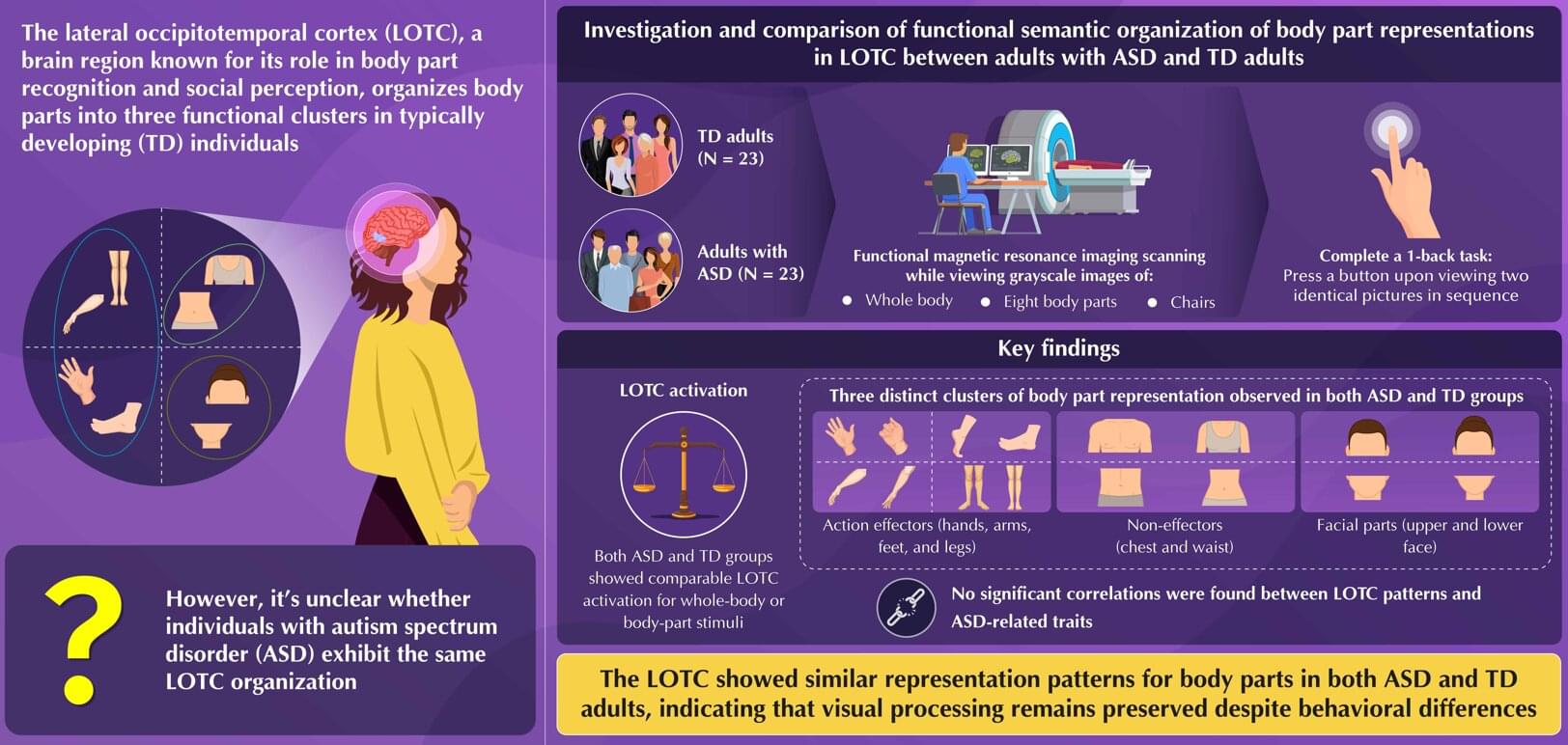
Autism spectrum disorder (ASD), a neurodevelopmental condition, is often associated with difficulties in social communication and repetitive behavior. Previous research reveals that people with ASD often find it challenging to interpret intentions from body language and have difficulty recognizing faces and emotions, which may contribute to their social communication problems.
Scientists speculate that these challenges might arise from differences in how the brain perceives faces and body parts, i.e., how individuals with ASD represent the human body. However, until now, no study had clearly mapped how body parts are represented in the brains of adults with autism or whether that organization differs from normal or typically developing (TD) adults.
In a detailed neuroimaging study involving adults in Japan, researchers addressed this knowledge gap by examining how ASD represents body parts in the brain. This study was published in the journal Imaging Neuroscience. A team of researchers used functional magnetic resonance imaging (fMRI) to compare brain activity patterns in adults with ASD and TD adults as they viewed images of body parts.

Researchers are gaining a deeper appreciation for the critical role the gastrointestinal (GI) tract plays in maintaining overall health. Beyond its primary responsibilities in digestion, the GI system contributes to the production of hormones, immune cells, and neurotransmitters that influence brain function and emotional well-being.
Because of this, the GI tract contains a wide array of biomarkers that are valuable for diagnosing, tracking, and managing disease—from short-chain fatty acids associated with metabolic syndrome to cytokines linked to inflammation.
However, current technologies fall short when it comes to capturing this biochemical information directly from the GI tract. Existing methods, such as fecal sampling and tissue biopsies, are often invasive, costly, and unable to deliver continuous or comprehensive real-time data throughout the length of the digestive system.